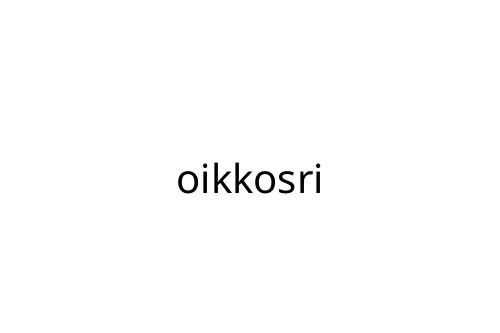Evolution of Leadership: From Traditional to Modern Perspectives
As I delve into the evolution of leadership from traditional to modern perspectives, it becomes evident that a significant shift has occurred in leadership styles. In the past, authoritarian leadership prevailed, emphasizing hierarchy and control. However, in the contemporary landscape, a collaborative approach has taken precedence, focusing on teamwork, inclusivity, and shared decision-making.
1. The Shift from Authoritarian to Collaborative Styles
In the past, leadership was often synonymous with authority and top-down decision-making. Leaders wielded power and control over their subordinates, expecting obedience and compliance. However, with changing dynamics in the business world and societal expectations, this authoritarian style has given way to a more collaborative approach.
Modern leaders recognize the importance of collaboration and empowerment. They value the input of their team members, encourage open communication, and foster a culture of trust and mutual respect. By embracing a collaborative style, leaders can harness the collective intelligence of their team, drive innovation, and adapt more effectively to rapid changes in the market.
2. The Impact of Technology and Globalization
Technology and globalization have revolutionized the way we perceive and practice leadership. In today’s interconnected world, leaders must navigate complex networks of communication and information flow. Technology has enabled remote work, virtual teams, and digital collaboration tools, redefining traditional notions of leadership proximity and presence.
Globalization has expanded the reach of businesses, requiring leaders to possess a global mindset and cultural intelligence. Effective leaders must now navigate diverse work environments, engage with stakeholders from various backgrounds, and adapt their leadership style to suit multicultural contexts. The impact of technology and globalization has necessitated a shift towards more agile, inclusive, and culturally sensitive leadership practices in the 21st century.
Core Traits of 21st Century Leaders
1. Adaptive and Resilient
As a 21st-century leader, I believe being adaptive and resilient is crucial in navigating the ever-changing business landscape. It’s essential to embrace change, pivot when necessary, and bounce back from setbacks quickly. Leaders who are adaptive can steer their teams through uncertainties and capitalize on emerging opportunities. Alongside adaptability, resilience fosters mental toughness, enabling leaders to persevere through challenges, learn from failures, and inspire their team members to do the same.
2. Emotionally Intelligent and Empathetic
In my view, emotional intelligence and empathy are indispensable traits for effective leadership in the modern era. Understanding and managing emotions, both of oneself and others, is vital for fostering a positive work environment, resolving conflicts, and building strong relationships with team members. Empathy, the ability to understand and share the feelings of others, allows leaders to connect on a deeper level, demonstrate genuine care, and create a supportive and inclusive culture within their organizations.
3. Visionary and Innovative
As a leader in the 21st century, I recognize the significance of being visionary and innovative. Having a clear vision inspires team members, aligns them towards a common goal, and propels the organization forward. Innovation drives competitiveness, fosters creativity, and enables strategic growth in dynamic markets. By fostering a culture of innovation, leaders empower their teams to think outside the box, challenge the status quo, and develop groundbreaking solutions that drive success in a rapidly evolving business landscape.
The Role of Communication in Redefining Leadership

Open and Transparent Communication Styles
- Effective leaders in the 21st century prioritize open and transparent communication within their organizations. Transparent communication fosters trust, enhances collaboration, and promotes a culture of honesty and integrity. By sharing information openly, leaders empower their teams, encourage meaningful discussions, and create a sense of belonging. This communication style not only strengthens relationships but also improves decision-making processes by ensuring that everyone is well-informed and aligned towards common goals.
The Importance of Active Listening
- Active listening is a crucial component of effective leadership in the modern era. By actively listening to their team members, leaders demonstrate respect, empathy, and a genuine interest in understanding diverse perspectives. This practice enables leaders to build stronger relationships, resolve conflicts proactively, and make well-informed decisions based on comprehensive input. Active listening also promotes a culture of inclusivity and psychological safety, where every individual feels valued and heard. Leaders who master the art of active listening cultivate a positive work environment and inspire higher levels of engagement and productivity among their teams.
Building and Sustaining Team Dynamics
Fostering a Culture of Trust and Accountability
- To build a strong team dynamic, it’s essential to foster a culture of trust and accountability. This involves setting clear expectations and empowering team members to take ownership of their tasks. By encouraging transparency and honesty within the team, I promote an environment where everyone feels valued and respected. Emphasizing accountability ensures that each team member understands their responsibilities and contributes to the overall success of the team. This culture of trust and accountability not only enhances collaboration but also boosts morale and productivity among team members.
Encouraging Diversity and Inclusion
- Embracing diversity and inclusion is crucial for creating a dynamic and innovative team. I actively seek out diverse perspectives and talents to enrich the team’s capabilities and foster creativity. By valuing different backgrounds, experiences, and ideas, I create an inclusive environment where every team member feels welcomed and respected. Encouraging diversity not only enhances problem-solving and decision-making processes but also cultivates a culture of learning and growth within the team. Ultimately, by promoting diversity and inclusion, I ensure that my team is well-equipped to tackle challenges and achieve success in the 21st-century business landscape.
Ethical Leadership and Social Responsibility
Prioritizing Ethical Decision-Making
In the realm of effective leadership in the 21st century, fostering ethical decision-making is paramount. It’s not just about making decisions; it’s about making the right decisions for the right reasons. As a leader, I prioritize ethical behavior by consistently aligning actions with values and principles. Upholding integrity, transparency, and honesty in all dealings sets the tone for the entire team to follow suit. By prioritizing ethical decision-making, leaders establish a culture of trust and credibility, essential for long-term success in today’s complex business environment.
Driving Positive Change in Society
Effective leaders in the 21st century understand the significance of driving positive change in society beyond the confines of their organizations. It’s about recognizing the interconnectedness between business success and societal impact. I leverage my leadership role to initiate and support social responsibility initiatives that contribute to the greater good. By engaging in philanthropic endeavors, sustainability practices, or community outreach programs, leaders can inspire their teams and stakeholders to be part of a meaningful movement towards positive change. Leading with a social conscience not only enhances reputation but also fosters a sense of purpose and fulfillment among team members.










































































































































































































































































































































































































































































































































































































































































































 Amber Derbyshire is a seasoned article writer known for her in-depth tech insights and analysis. As a prominent contributor to Byte Buzz Baze, Amber delves into the latest trends, breakthroughs, and developments in the technology sector, providing readers with comprehensive and engaging content. Her articles are renowned for their clarity, thorough research, and ability to distill complex information into accessible narratives.
With a background in both journalism and technology, Amber combines her passion for storytelling with her expertise in the tech industry to create pieces that are both informative and captivating. Her work not only keeps readers up-to-date with the fast-paced world of technology but also helps them understand the implications and potential of new innovations. Amber's dedication to her craft and her ability to stay ahead of emerging trends make her a respected and influential voice in the tech writing community.
Amber Derbyshire is a seasoned article writer known for her in-depth tech insights and analysis. As a prominent contributor to Byte Buzz Baze, Amber delves into the latest trends, breakthroughs, and developments in the technology sector, providing readers with comprehensive and engaging content. Her articles are renowned for their clarity, thorough research, and ability to distill complex information into accessible narratives.
With a background in both journalism and technology, Amber combines her passion for storytelling with her expertise in the tech industry to create pieces that are both informative and captivating. Her work not only keeps readers up-to-date with the fast-paced world of technology but also helps them understand the implications and potential of new innovations. Amber's dedication to her craft and her ability to stay ahead of emerging trends make her a respected and influential voice in the tech writing community.
